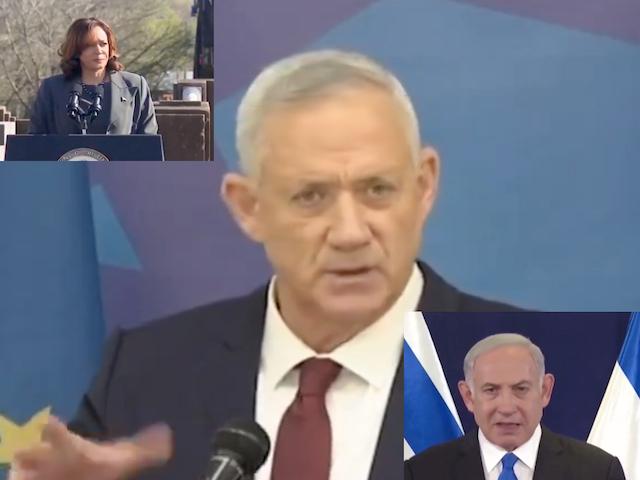More than four months have elapsed since the onset of a grave crisis, initiated by the incursion of Hamas terrorists into Israel on October 7. This period has witnessed the Israeli military's rigorous operations against targets in the Gaza Strip, marking this conflict as the most severe since the establishment of Israel in 1948. Despite the fleeting respite a brief cease-fire offered, facilitating the liberation of over 100 hostages from Gaza, peace remains elusive.
In a significant diplomatic engagement, Vice President Kamala Harris is slated to convene with Benny Gantz, a key figure in the Israeli war Cabinet, at the White House. This meeting underscores a concerted effort by the United States to closely collaborate with a spectrum of Israeli officials concerning the ongoing conflict in Gaza. A White House spokesperson confirmed this development, emphasizing the discussions will pivot around Israel's inherent right to self-defense against Hamas's aggression, alongside the criticality of forging a robust hostage release agreement. Prime Minister Benjamin Netanyahu is reportedly fuming that Gantz will be having meetings with Harris and others and, according to multiple sources has instructed the Israeli Embassy to not assist his political rival with any of his meetings on this trip.
Netanyahu instructed Israel's ambassador to the U.S. not to provide any support for War cabinet member Benny Gantz’s visit to Washington, where he is scheduled to meet with VP Harris and other senior officials
— i24NEWS English (@i24NEWS_EN) March 4, 2024
Yedioth Aharonoth journalist @BDYemini discusses with @benitalevin pic.twitter.com/N80zYyYVFc
Harris is poised to articulate the Biden administration's perspective, stressing the imperative of facilitating humanitarian aid to Gaza through U.S. airdrops and the establishment of a maritime corridor for direct aid delivery. Furthermore, she intends to highlight the importance of minimizing civilian casualties and will address concerns regarding the safety of approximately 1.5 million individuals seeking refuge in Rafah.
The dialogue between Harris and Gantz will also explore post-conflict reconstruction efforts aimed at revitalizing Gaza and the Palestinian Authority. The goal is to pave the way for a unified governance over Gaza and the West Bank, fostering a positive political trajectory for the Palestinian populace.
Multiple Israeli officials confirmed that Minister Gantz is visiting against the will of Netanyahu, and the PM ordered the Israeli Ambassador to the US to boycott the WH meetings. Gantz's schedule includes meetings with Secretary Blinken, Brett McGurk, Jake Sullivan & VP Harris. https://t.co/l5zRvlcD4k
— Margaret Brennan (@margbrennan) March 3, 2024
The backdrop of this meeting is a previous encounter between Harris and Gantz at the 2022 Munich Security Conference, with National Security Adviser Jake Sullivan also scheduled for a separate meeting with Gantz.
Amidst these diplomatic endeavors, an adviser to Israeli Prime Minister Benjamin Netanyahu has refuted suggestions that U.S. airdrops signify dwindling confidence in the Israeli government's capacity to address the humanitarian crisis in Gaza. Ophir Falk, speaking to ABC News, clarified that these airdrops were executed in tandem with Israeli coordination. Falk robustly defended Israel's humanitarian efforts, underscoring the facilitation of aid via thousands of trucks into Gaza, thereby challenging allegations of insufficient aid provision and resultant starvation deaths.
“Netanyahu is reportedly furious that Gantz is heading to DC without his approval, and is said to have instructed the Israeli embassy in Washington not to facilitate his meetings.”
— Kim Masters (@kimmasters) March 3, 2024
If it pisses off, Netanyahu, it’s fine with me. https://t.co/ibnGNs7uLo
Falk's comments come in the wake of reports from UNICEF and medical professionals in Gaza about malnutrition fatalities among children, a situation Israel attributes to the misappropriation of aid by Hamas. This assertion underlines the complexity of delivering humanitarian aid in conflict zones, where ensuring aid reaches those in need without empowering Hamas remains a formidable challenge. Israel's steadfast commitment to this principle reflects its dedication to humanitarian values amidst the trials of conflict.


